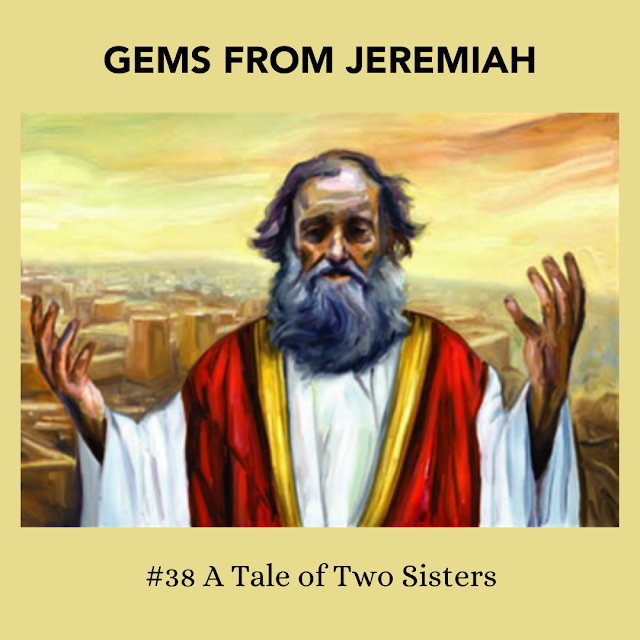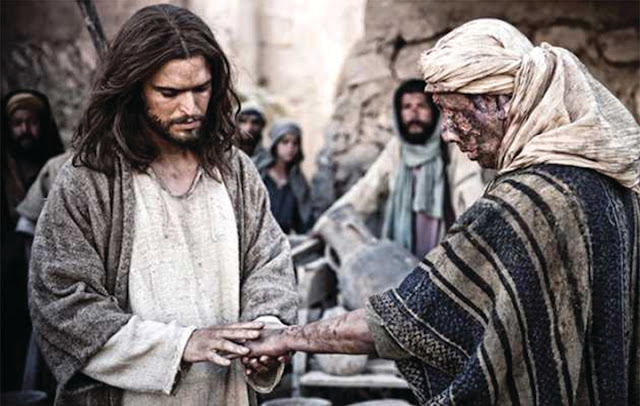GOD'S NEW WORLD, DAY 31 (the fate of the nations, part I)
“To everyone who conquers and continues to do my works to the end,
I will give authority over the
nations,
to rule them with an iron scepter,
as when clay pots are shattered—
even as I also received authority
from my Father.” (Rev. 2.26-28; cf. Ps. 2.9)
The second Psalm is one of the
favourite Psalms of the New Testament, i.e. it is often quoted by the NT
authors. Psalm 2 describes “the nations”
and “the kings of the earth”[1]
who plot against Yahweh and his anointed king in order to liberate themselves from
their rule (Ps. 2.1-3; cf. Rev. 1.5, 11.15).
This Psalm reflects, perhaps, the situation of the kingdom of Israel
during the reign of Solomon[2]
(cf. 2 Sam. 7.12-16) when Israel’s territory had expanded to include several
surrounding nations and when rulers came from far and wide to pay tribute to
Solomon in Jerusalem (cf. 1 Kings 4, 10).
In response to the conniving of the pagan
nations, Yahweh – the “one who sits in the heavens”[3]
(Ps. 2.4) – laughs and castigates these rebellious Gentile rulers in his wrath[4]:
“I have set my king on Zion, my holy hill” (2.5-6). Yahweh then turns to his anointed, the king
of Jerusalem, and tells him: “You are my son[5];
today I have begotten you” (2.7)[6]. Yahweh continues to speak to his “son”: “Ask me,
and I will make the nations your heritage, and the ends of the earth your
possession” (2.8). The aspiration
reflected in this psalm is that Yahweh, the king of the cosmos (cf. Pss. 47,
93-99), will rule over the nations of the earth through his viceroy, the king
of his people, Israel. This is the Old
Testament vision of the “kingdom of God”, which displaces all earthly kingdoms
(with the exception of Israel: cf. Dn. 2, 7).
After promising the insubordinate nations to his earthly representative,
Yahweh instructs his anointed to “break them with a rod of iron, and dash them
in pieces like a potter’s vessel” (Ps. 2.9).[7] The psalm ends with a solemn warning to the
kings of the earth to submit to Yahweh (i.e. his representative in Zion: Ps.
2.10-11; cf. Rev. 1.5) and thus avert his wrath.
The New Testament naturally understands
Jesus as having fulfilled Psalm 2. To
look no further than the two-volume work of Luke-Acts: the birth of the Davidic
“son” of God is announced (Lk. 1.30-35) “in the days of Caesar Augustus” (Lk.
2.1) – who also claimed the honorific “son of a god”[8]
– the Son of Yahweh/anointed king of Israel (i.e. Messiah) is eventually attacked
and killed by “the kings of the earth” (Lk. 23; cf. Ac. 4.25-26), but is raised
from death (Lk. 24; cf. Ac. 2.24-28, quoting Ps. 16) and endows his apostles
with a mission to “the ends of the earth” (Ac. 1.8)[9]
before he is elevated to “the right hand of God” to reign over the cosmos as Lord[10]
of the nations (Ac. 1.9-11; cf. 17.6-7).
The “kingdom of God” had been the main subject of Jesus’ teaching (cf.
Lk. 8, etc.) and serves to bookend the book of Acts (Ac. 1.3; 28.30-31).
Indeed, Psalm 2 provides the theological justification
for everything the apostles undertake in the book of Acts (besides the explicit
instructions given to them by the risen Jesus in chapter 1). If Jesus is the Messiah of Israel, then he is
also – so says Psalm 2 – the lord of all the nations, and the envoys of the
Davidic king therefore travel to the ends of the earth with the “gospel”[11]
(royal proclamation) that the world’s true ruler has acceded to the throne of
the cosmos. The kingdom of Yahweh is
thus established among the doomed kingdoms of the earth (result: “the world is
turned upside down”: Ac. 17.6).
[1] Jesus is described as “the ruler of the kings of the earth” in Rev.
1.5, etc.
[2] 10th century B.C.
[3] Cf. the way that God is described in the book of Revelation as “the
one seated on the throne” (Rev. 4.2, etc.).
[4] Cf. Rev. 6.15-17 where the wrath of both the One seated on the
throne and of the Lamb is unleashed against the rebellious world.
[5] The king of Israel was often referred to as “Yahweh’s son”: 2 Sam.
7.14; Ps. 89.20, 26-29; cf. also Ex. 4.22).
[6] Quoted frequently in the New Testament, especially at the scene of
Jesus’ baptism (cf. Mt. 3.17; Mk. 1.11; Lk. 3.22; cf. also Ac. 4.25-26; 13.33;
Heb. 1.5; 5.5).
[7] This is a favourite verse of the book of Revelation (cf. Rev. 2.27,
etc.).
[8] I.e. son of the divine Julius Caesar, his adoptive father and predecessor,
who had been apotheosized by the Roman senate following his assassination.
[9] There seems to be a deliberate “non-violent hermeneutic” being
utilized by the NT authors as they quote the Hebrew Scriptures. Ps. 2 is one of the most frequently quoted
Psalms in the NT to refer to Jesus’ messiahship (cf. the voice from heaven at
Jesus’ baptism, Ac. 4.25-26, passim). Interestingly, Revelation is the
only NT book to quote Ps. 2.9 (Yahweh’s anointed will rule the nations with a
“rod of iron”; cf. Rev. 2.27; 12.5; 19.15).
Also, Luke omits Is. 61.2b (“the day of vengeance of our God”) as he has
Jesus read from the scroll of Isaiah in Lk. 4.17-19.
[10] Another title claimed by the Caesars.
[11] A term used by the Romans to herald a military victory or the enthronement
of a new emperor, both situations being believed to result in “peace”.




Comments
Post a Comment